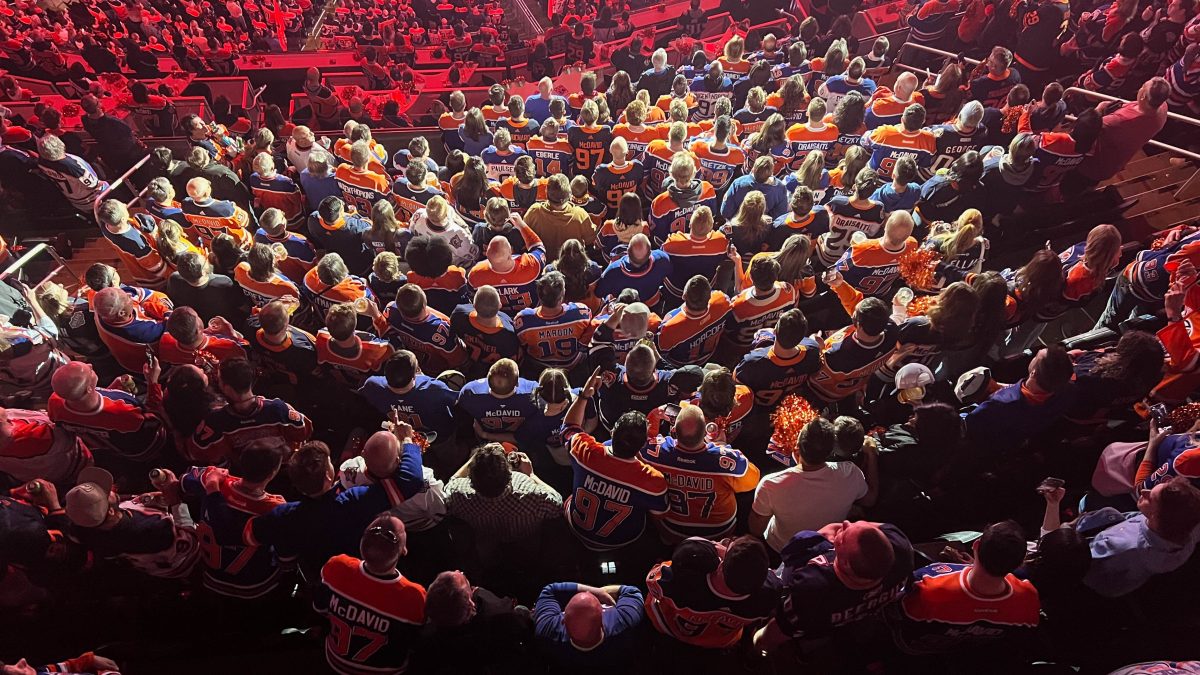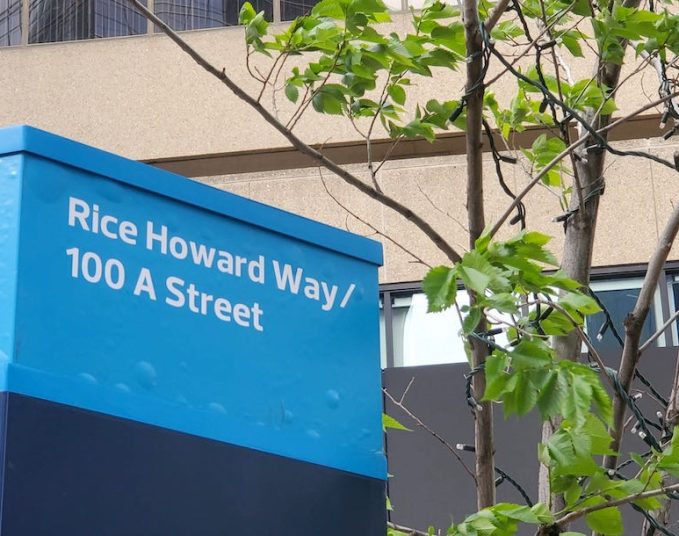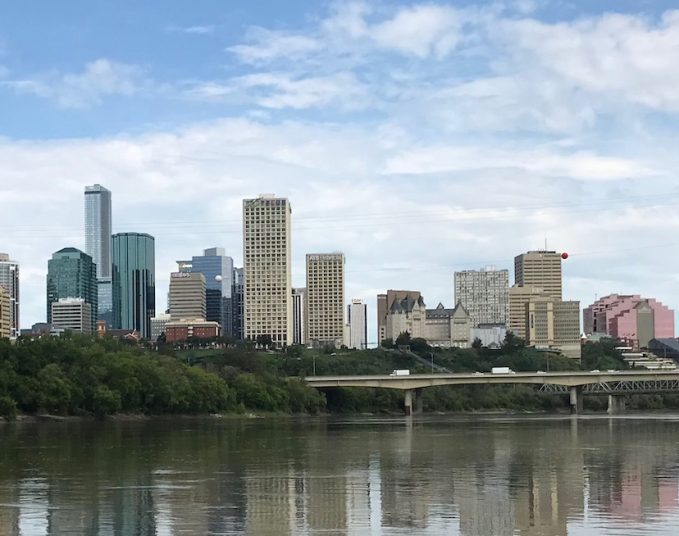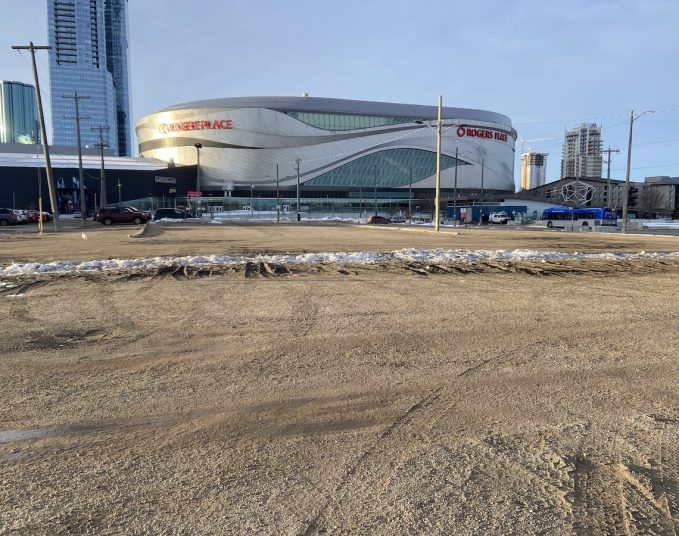The Edmonton Oilers hadn’t yet defeated Dallas and Barnie Yerxa was already fielding hotel reservations for the Stanley Cup finals.
“It’s been a flurry of activity for the past 72 hours,” Yerxa, the dual general manager for Delta Edmonton Centre and Delta Edmonton South said on June 3, the morning after the Oilers clinched a spot in the finals. “But the last 18 hours have picked up even more.”
June 8 marks the first time the Oilers will face off in the Stanley Cup finals since ’06. It’s a big deal for the team that, despite a decades long drought, once helped cement Edmonton’s slogan as “The City of Champions.” (And Coun. Aaron Paquette wants to bring it back.) Based on Yerxa and other hotelier’s surge of reservation requests, tickets that sold out in minutes (even with prices in the thousands of dollars range) and a condition of generalized Oilers-mania afflicting the population, it’s clear that Edmontonians, and Albertans broadly, are amped at the prospect of bringing the Cup back to Canada.
Regular season Oilers games draw anywhere from 20,000 to 30,000 people to the city’s downtown, with that number doubling during the playoffs, according to the Edmonton Downtown Business Association’s Puneeta McBryan. With the Stanley Cup finals, Oiler’s Entertainment Group’s Stuart Ballantyne expects numbers to swell.
“We’re hosting 24,000 to 25,000 people when the team isn’t even in town,” Ballantyne, the president and chief operating officer for Rogers Place and the ICE district, said. “For what would be considered a smaller market in the NHL, we punch so far above our weight with the fanbase being so energetic and committed to the brand.”
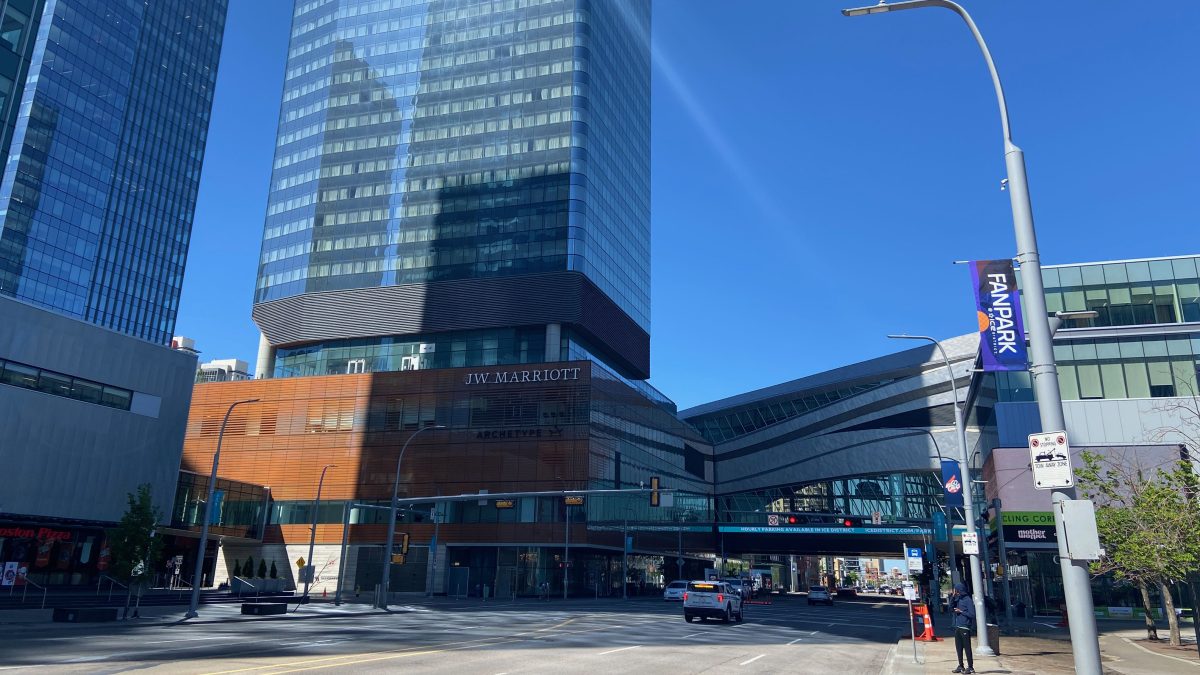
And those numbers won’t just include fans that live in Edmonton and the surrounding area. Ballantyne said the franchise counts a substantial number of fans outside a two-hour travel radius of the Edmonton Metropolitan Area.
“We have a lot of people who travel in from places like Grande Prairie, Fort McMurray and even Red Deer during our regular season,” Ballantyne said. “Our anticipation is those numbers grow.”
That’s not just good news for the Oilers, who are undoubtably seeing huge profits from the team’s success thus far, or for Edmonton’s tourism and hospitality industries who will benefit from out-of-town visits and packed sports bars. It’s also just really good for our city’s soul.
Dr. Dan Mason is a professor with the University of Alberta’s Faculty of Kinesiology, Sport and Recreation. Throughout his tenure his research has focused on, among other things, sports leagues, franchises and sporting events. Mason said that while there will be some boost to the local economy, it may be smaller than many expect, with the real boost coming from the more intangible benefits of the playoff finals.
“With intangible [benefits] you have things like psychic income, water-cooler talk, people in the city feeling good about themselves,” Mason said. “Research has shown that intangible benefits tend to be there for sports teams — especially ones that are successful the way the Oilers are right now. That’s good for the city and there is a value to that.”
Mason said that injection of pride and Oilers-induced jubilation can actually be quantified through something called contingent valuation method (CVM).
“[CMV] has its roots in environmental economics and trying to put a dollar value on a public good that doesn’t necessarily have a market value. For example, wetlands. A wetland doesn’t necessarily have a market value, but people would argue having it is good for a community. So then you say how much are willing to pay to have a wetland?”
Years ago, before Rogers Place was a landmark in the downtown skyline, Mason did some CMV surveying around the potential developments of arenas in Edmonton and Calgary. What he found was that when it comes to hockey, those intangible effects go a long way towards getting Edmontonians to open their pocket books.
“One of the things we were doing was saying if you build the arena downtown as opposed to somewhere else in the city, it’s going to make the city more vibrant and exciting, but it’s also going to be more expensive,” he said. “So what we were asking was: What would the willingness be to build the arena downtown versus elsewhere and in Edmonton that willingness to pay [more for the downtown location] was about $30-million.”
That $30 million translates into additional taxes Edmontonians would be willing to pay to have the arena downtown rather than in another part of the community. In comparison, that’s a little less than three years of Connor McDavid’s salary. And that money might do more for the city than any tourism campaign.
Savvy AF. Blunt AF. Edmonton AF.

